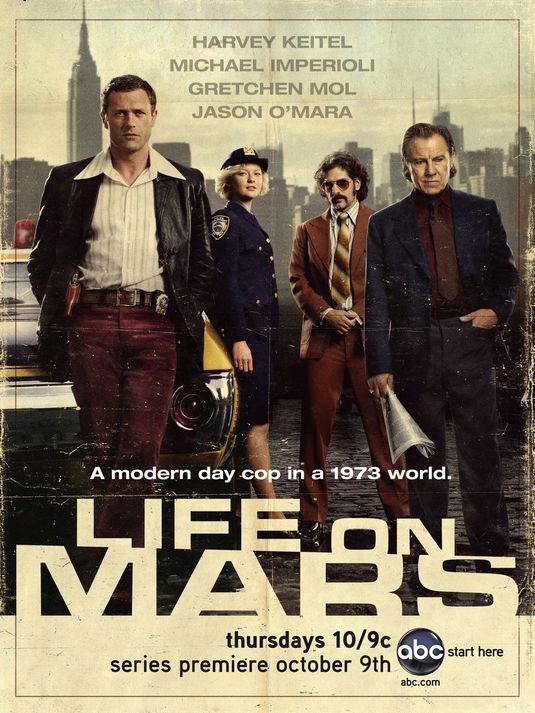
He attributes the success of the American Office to the simple formula worked out by the producers of just adding 10% more hope. Where the utterly dismal outlook of drained zombie-like employees at Wernham Hogg's Slough, England, branch fit in with British television, 10% more hope, a glimmer of optimism without going too far and losing touch with the whole point of the show made the show both palatable and successful on American television.
The failure of Life on Mars (U.S) can be attributed to the skewing of the formula. The American producers seem to not trust their audiences to accept characters who aren't the right definition of beautiful, aren't politically correct and don't fit into the mold of what is typically seen on American television. The American producers added "10 percent more hope, 30 percent more schmaltz, 50 percent more glamour, and 700 percent better production values." In this transformation the show lost its heart and its charm. Gene Hunt isn't nearly as gruff, tough and offensive enough to fill the shoes of his U.K counterpart. Sam is too tall and good looking to create the right kind of tension between his boss, and his love interest is too beautiful but without the sweetness.


Life on Mars (U.S) & Life on Mars (U.K.) Can you spot the differences?
The most offensive move on the part of the U.S. production was its strange attempts to provide closure once the series had been canceled. With no regard to the original concept the producers create a scenario that really sounds like a bad joke. Sam wakes up in 2035 on board a spaceship, the whole life in the 1970s had been a virtual reality hallucination to pass the time on his journey. This basically breaks the entire premise invalidates all the uncertainties (is Sam in a coma? is he dead?)The U.K. series comes to a solid end after two series carefully solving the dilemma. The U.S. series jacked the finale full of crazy and let it set out to sea.
With news breaking of the latest U.K. to U.S. remake of Torchwood on FOX, which way do you think the show will go?
Click here to read the full article on Slate.com.
No comments:
Post a Comment